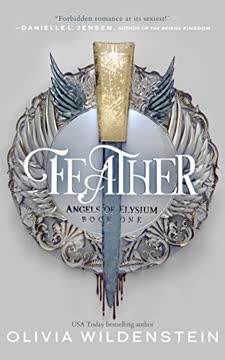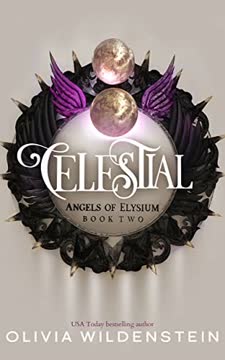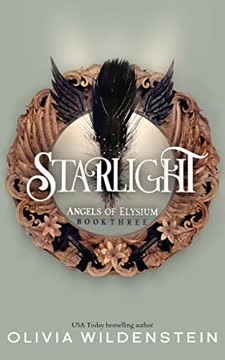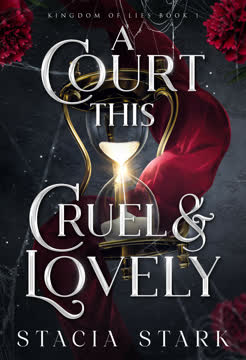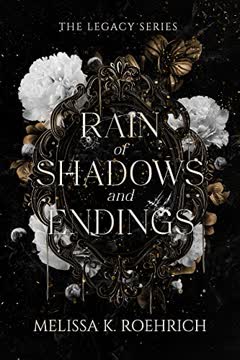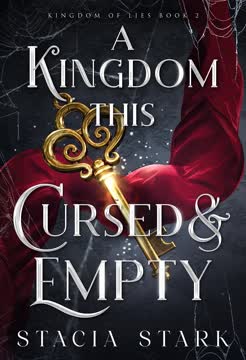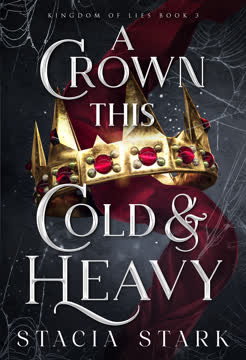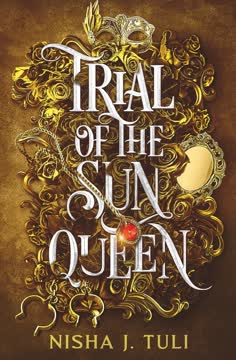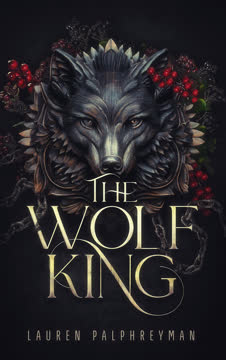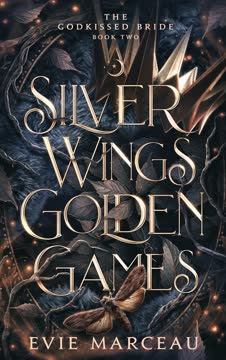Plot Summary
Wings and Worthiness
Leigh, a young angel known as a Fletching, has never lost a feather—proof of her virtue and carefulness. She dreams of becoming a Malakim, a soul shepherd, but is haunted by the pressure to complete her wings before her time runs out. Her best friend Eve, ambitious and dazzling, is close to ascending, and the arrival of the archangel Asher at their New York guild stirs excitement and rivalry. Leigh's pure Verity wings make her a rarity, drawing Asher's attention and sparking jealousy. The celestial hierarchy, the rules of earning feathers through helping sinners, and the looming threat of becoming a Nephilim if she fails, all weigh on Leigh's mind. Her journey begins with a sense of hope, anxiety, and the desire to prove her worth in a world that measures value by the fullness of one's wings.
The Archangel's Visit
Asher, the youngest and most compassionate of the Seraphim, visits the guild seeking a consort. His presence electrifies the Fletchings, especially Eve, who sees marriage to an archangel as the ultimate prize. Leigh, however, is torn—she wants more than to be someone's wife; she wants purpose. Asher's speech about partnership and change hints at a desire for reform, but the system's rigidity is clear: only Verities can ascend to the highest ranks. The event exposes the cracks in angelic society—prejudice against hybrids, the pressure to conform, and the cost of ambition. Leigh's friendship with Celeste, a hybrid struggling to earn her wings, deepens her resolve to fight for change, even as she feels like an outsider in her own world.
Sinner's Gambit
In the Ranking Room, Leigh faces the daunting task of choosing her next sinner to help. Eve, eager to secure her own future, pushes Leigh toward Jarod Adler—a Triple, the most irredeemable of sinners, whose score has never budged despite over a hundred attempts. The promise of a hundred feathers is tempting, but the risk is immense. Leigh's decision is shaped by a mix of ambition, loyalty, and the desire to prove herself. The system's flaws become apparent: the pressure to succeed, the temptation to take shortcuts, and the emotional toll of failure. Leigh's choice sets her on a collision course with darkness, testing her faith in herself and the system she serves.
Choosing the Triple
Leigh prepares to leave for Paris, her heart heavy with fear and hope. Eve's encouragement is tinged with rivalry, and Celeste's support is fierce but honest. Asher, sensing the danger, warns Leigh about the risks of taking on a Triple. The journey to Paris is both literal and symbolic—a crossing from the safety of the guild into the unknown. Leigh's arrival in the Parisian guild is marked by isolation and uncertainty. The city's beauty contrasts with the darkness of her mission. The chapter explores the complexities of friendship, the pain of leaving home, and the courage required to face the unknown.
Parisian Temptations
Leigh's first attempt to meet Jarod Adler plunges her into a world of decadence and danger. The Court of Demons is a place of masked parties, sensuality, and moral ambiguity. Jarod is magnetic, cruel, and unreadable—a man who mocks Leigh's mission and exposes her naivety. The encounter costs Leigh her first feather, a shattering loss that shakes her confidence. The city's temptations—food, beauty, and the thrill of risk—are both seductive and perilous. Leigh's struggle to maintain her virtue and purpose in the face of temptation is a central tension, as is her growing fascination with Jarod.
The Demon Court
Leigh's interactions with Jarod and his inner circle—Tristan, Muriel, and the denizens of the Court—reveal the complexities of power, loyalty, and survival. Jarod's cruelty is matched by moments of unexpected kindness, and Leigh's determination to help him is tested by his resistance and her own emotional turmoil. The loss of feathers becomes a metaphor for the cost of vulnerability and the pain of confronting one's own limitations. Leigh's relationships with Celeste and Eve are strained by distance and betrayal, and the lines between friend and foe blur. The chapter explores the seductive pull of darkness and the difficulty of holding onto light.
Feathers and Falling
After a disastrous first attempt, Leigh contemplates giving up, but Celeste's faith in her rekindles her resolve. The theme of falling—both literal and metaphorical—runs through the chapter. Leigh's willingness to risk further loss, to endure pain and humiliation, is a testament to her resilience. The city of Paris becomes a character in its own right, a place of beauty and danger, hope and despair. Leigh's decision to give Jarod another chance is an act of faith, both in herself and in the possibility of redemption. The chapter is a meditation on the nature of failure and the importance of perseverance.
Bargains and Betrayals
Leigh strikes a bargain with Jarod: twenty-four hours to change his ways. The clock is ticking, and the stakes are high. The chapter is a whirlwind of encounters—supplicants seeking Jarod's help, moments of connection and misunderstanding, and the ever-present threat of betrayal. Leigh's growing feelings for Jarod are complicated by revelations about his past, the truth about his mother's death, and the machinations of those around him. Eve's betrayal is exposed, deepening Leigh's sense of isolation and loss. The chapter explores the price of ambition, the pain of betrayal, and the difficulty of discerning truth from lies.
Hearts Unveiled
As Leigh and Jarod grow closer, their defenses begin to crumble. Moments of vulnerability—shared meals, confessions, and physical intimacy—reveal the depth of their connection. The act of smoldering, the angelic sign of attraction, becomes a symbol of Leigh's awakening desire and the breaking of taboos. The chapter is suffused with longing, tenderness, and the fear of loss. The barriers between angel and human, light and darkness, are blurred, and the possibility of love becomes both a source of hope and a cause for dread.
The Price of Truth
The truth about Jarod's heritage—his status as a Nephilim hybrid, his inability to ascend—shatters Leigh's hopes for a future together. The system's injustice is laid bare, and Leigh is forced to confront the limits of forgiveness and the cost of love. The death of Tristan, Jarod's closest friend, is a turning point, plunging Jarod into grief and guilt. Leigh's own sacrifice—her decision to give up her wings to be with Jarod—marks the climax of her journey. The chapter is a meditation on the nature of truth, the pain of sacrifice, and the possibility of redemption.
Love and Loss
The aftermath of Tristan's death and Leigh's sacrifice is a time of mourning and reflection. The peace that follows is fragile, haunted by the knowledge that happiness is fleeting. The return of Asher, the archangel, brings both hope and dread. The system's rigidity, the impossibility of changing the rules, and the inevitability of loss are central themes. Leigh's love for Jarod is both her salvation and her undoing, and the chapter explores the paradox of finding meaning in suffering.
Sacrifice and Salvation
Leigh's decision to have her wings burned away is an act of ultimate sacrifice, a rejection of immortality for the sake of love. The pain is excruciating, both physical and emotional, and the consequences are irreversible. The chapter is a meditation on the nature of salvation—what it means to save and be saved, the limits of agency, and the power of love to transcend even the most rigid of systems. Leigh's reunion with Jarod is bittersweet, marked by joy, fear, and the knowledge that time is running out.
Ashes and Ascension
The final tragedy unfolds: Jarod is mortally wounded, and Leigh, unable to save him, chooses to die by his side. Their deaths are both an ending and a beginning, a passage from one world to the next. The epilogue, told from Asher's perspective, is a meditation on the nature of death, the cycle of souls, and the hope of reunion. The act of gathering Leigh and Jarod's souls is both an act of mercy and a promise of change. The chapter is suffused with grief, hope, and the sense that love endures beyond death.
Elysium's Choice
Leigh awakens in Elysium, confronted by the beauty and strangeness of the angelic afterlife. The reunion with her parents is awkward and bittersweet, marked by the scars of abandonment and loss. The system's flaws are exposed—its prejudice against Nephilim, its resistance to change, and its failure to recognize the value of love and sacrifice. Leigh's confrontation with Asher and the Seraphim is a call to action, a demand for justice and reform. The chapter is a meditation on the nature of choice, the possibility of change, and the enduring power of love.
The Last Goodbye
Leigh's final act—her decision to give up her wings and return to Jarod—is both a farewell and a challenge to the world she leaves behind. The pain of loss is matched by the hope of reunion, and the promise of change lingers in the air. The chapter is a meditation on the nature of legacy, the importance of fighting for what is right, and the belief that love can change even the most unyielding of systems. Leigh's story ends with a sense of closure and the hope that her sacrifice will not be in vain.
The End and the Beginning
The story closes with Asher's act of mercy—gathering Leigh and Jarod's souls and carrying them into the unknown. The cycle of death and rebirth, the possibility of change, and the enduring power of love are the final notes. The ending is both tragic and hopeful, a promise that the story is not truly over, and that the seeds of change have been planted. The chapter is a meditation on the nature of endings and beginnings, the promise of transformation, and the belief that love endures beyond all boundaries.
Characters
Leigh
Leigh is a Fletching, a young angel with pure Verity wings, whose journey is defined by her struggle to balance virtue, ambition, and love. Her desire to become a Malakim is driven by empathy and a longing for purpose, but she is haunted by self-doubt and the fear of failure. Leigh's relationships—with Eve, Celeste, Asher, and especially Jarod—reveal her capacity for loyalty, forgiveness, and sacrifice. Her psychological arc is one of awakening: from innocence to experience, from obedience to rebellion, and from self-preservation to self-sacrifice. Leigh's ultimate choice—to give up her wings for love—challenges the very foundations of her world and marks her as a catalyst for change.
Jarod Adler
Jarod is the enigmatic leader of the Court of Demons, a man marked by tragedy, guilt, and a reputation for cruelty. His status as a Triple, his hybrid heritage, and his traumatic past—especially the death of his mother—shape his worldview and relationships. Jarod's psychological complexity is revealed through his interactions with Leigh: his resistance to change, his fear of vulnerability, and his capacity for love and redemption. His journey is one of self-discovery, as he confronts the truth about his past, his heritage, and his worthiness of love. Jarod's ultimate sacrifice—his willingness to die for Leigh—cements his transformation from monster to martyr.
Eve
Eve is Leigh's best friend and rival, a dazzling Fletching whose ambition drives her to the brink of betrayal. Her desire to ascend, to marry Asher, and to secure her place in the celestial hierarchy is both a source of strength and a cause of pain. Eve's relationship with Leigh is marked by competition, jealousy, and moments of genuine affection. Her arc is one of self-realization, as she confronts the consequences of her actions and seeks forgiveness. Eve's support in Leigh's final moments is a testament to the enduring power of friendship, even in the face of betrayal.
Asher
Asher is the youngest Seraphim, a figure of power, empathy, and internal conflict. His desire to reform the system, his attraction to Leigh, and his sense of responsibility for Jarod's fate drive much of the narrative. Asher's psychological complexity is revealed in his struggle to balance duty and desire, tradition and change. His ultimate act of mercy—gathering Leigh and Jarod's souls—marks him as a figure of hope and transformation, even as he is haunted by guilt and loss.
Celeste
Celeste is a hybrid Fletching, Leigh's closest confidante and moral compass. Her struggle to earn her wings, her outsider status, and her fierce loyalty to Leigh make her a symbol of the system's flaws and the possibility of change. Celeste's psychological arc is one of resilience, as she navigates prejudice, disappointment, and the pain of loss. Her support for Leigh, even in the face of disagreement, is a testament to the power of chosen family and the importance of solidarity.
Tristan
Tristan is Jarod's right-hand man, a figure of loyalty, violence, and deep psychological wounds. His devotion to Jarod is both a source of strength and a cause of jealousy and resentment. Tristan's actions—his betrayal, his role in the attack on Leigh, and his eventual death—reveal the destructive power of unaddressed trauma and the dangers of misplaced loyalty. His arc is a cautionary tale about the limits of friendship and the consequences of refusing to change.
Muriel
Muriel is the heart of Jarod's household, a figure of warmth, wisdom, and resilience. Her role as surrogate mother, confidante, and moral anchor is central to both Jarod's and Leigh's journeys. Muriel's psychological strength is revealed in her ability to endure loss, offer comfort, and stand up to danger. Her presence is a reminder of the importance of kindness, stability, and unconditional love in a world marked by chaos and pain.
Seraph Claire
Seraph Claire is Eve's mother and a member of the Council of Seven, a figure of power, tradition, and rigidity. Her commitment to the rules, her prejudice against hybrids and Nephilim, and her resistance to change make her both a formidable antagonist and a symbol of the system's flaws. Claire's psychological arc is one of confrontation, as she is forced to reckon with the consequences of her decisions and the possibility of reform.
Sofia and Raphael
Leigh's biological parents, both Erelim, are figures marked by loss, regret, and emotional distance. Their inability to connect with Leigh, their fear of attachment, and their scars from losing previous children shape their relationship with her. Their presence in Elysium is a reminder of the pain of abandonment and the difficulty of healing old wounds.
The Ishim
The Ishim are the rankers, the judges of souls, and the enforcers of the system's rules. Their decisions shape the fates of angels and humans alike, but their rigidity and lack of empathy reveal the system's limitations. The Ishim's role in Jarod's fate, their resistance to change, and their ultimate failure to recognize the value of love and sacrifice make them both powerful and deeply flawed.
Plot Devices
Angelic Hierarchy and Feather System
The narrative is structured around the celestial hierarchy, where angels earn feathers by helping sinners and risk becoming Nephilim if they fail. This system is both a source of motivation and a cause of anxiety, shaping characters' ambitions, relationships, and sense of self-worth. The feather system serves as a metaphor for virtue, agency, and the cost of failure, and its flaws are exposed through the experiences of hybrids, Nephilim, and those who challenge the rules.
The Sinner Score and Redemption Arc
The Ranking System assigns scores to sinners, with Triples representing the most irredeemable. The pursuit of redemption—both for sinners and for angels—is central to the plot, driving characters to confront their own limitations, challenge the system, and make sacrifices. The system's rigidity, its prejudice against hybrids and Nephilim, and its failure to recognize the value of love and agency are recurring themes.
Forbidden Love and Sacrifice
The love story between Leigh and Jarod is both a source of hope and a cause of suffering. Their relationship is marked by barriers—status, heritage, rules, and mortality—and their willingness to sacrifice for each other is both their salvation and their undoing. The narrative structure uses their romance to explore themes of agency, choice, and the power of love to challenge and transform even the most unyielding of systems.
Betrayal, Loyalty, and the Chosen Family
The plot is driven by acts of betrayal (Eve's, Tristan's, the system's) and the search for loyalty and belonging. The concept of chosen family—Leigh's relationships with Celeste, Muriel, and even Jarod—contrasts with the pain of abandonment and the limitations of blood ties. The narrative uses these dynamics to explore the importance of solidarity, forgiveness, and the possibility of healing.
Foreshadowing and Cyclical Structure
The story is rich in foreshadowing—Leigh's fear of failure, Jarod's haunted past, the warnings about the system's flaws—and uses a cyclical structure to reinforce the themes of death, rebirth, and transformation. The prologue and epilogue mirror each other, and the narrative is punctuated by moments of reckoning, sacrifice, and the hope of change.
Analysis
Feather is a sweeping, emotionally charged fantasy that uses the framework of angelic hierarchy and redemption to explore the deepest questions of worth, agency, and love. At its heart, the novel is a critique of rigid systems—whether celestial or human—that value conformity over compassion, status over substance, and tradition over transformation. Leigh's journey from innocence to experience, from obedience to rebellion, is a powerful meditation on the cost of agency and the courage required to challenge the rules. The love story between Leigh and Jarod is both a source of hope and a cause of suffering, a testament to the power of love to transcend boundaries and a warning about the pain of sacrifice. The novel's ending—tragic yet hopeful—suggests that true change is possible only when individuals are willing to risk everything for what they believe is right. Feather is ultimately a story about the enduring power of love, the necessity of questioning authority, and the belief that even the most broken systems can be transformed by those brave enough to challenge them.
Last updated:
Review Summary
Feather is a Romeo and Juliet retelling featuring angels and a mafia boss. Readers praise the unique world-building, engaging characters, and steamy romance. Many were captivated by the tragic love story between Leigh, an angel-in-training, and Jarod, a notorious sinner. The book's pacing and writing style received positive feedback. While some found the ending heartbreaking, others appreciated its emotional impact. Critics noted issues with character development and pacing. Overall, the novel garnered mostly positive reviews for its creative premise and addictive storytelling.
